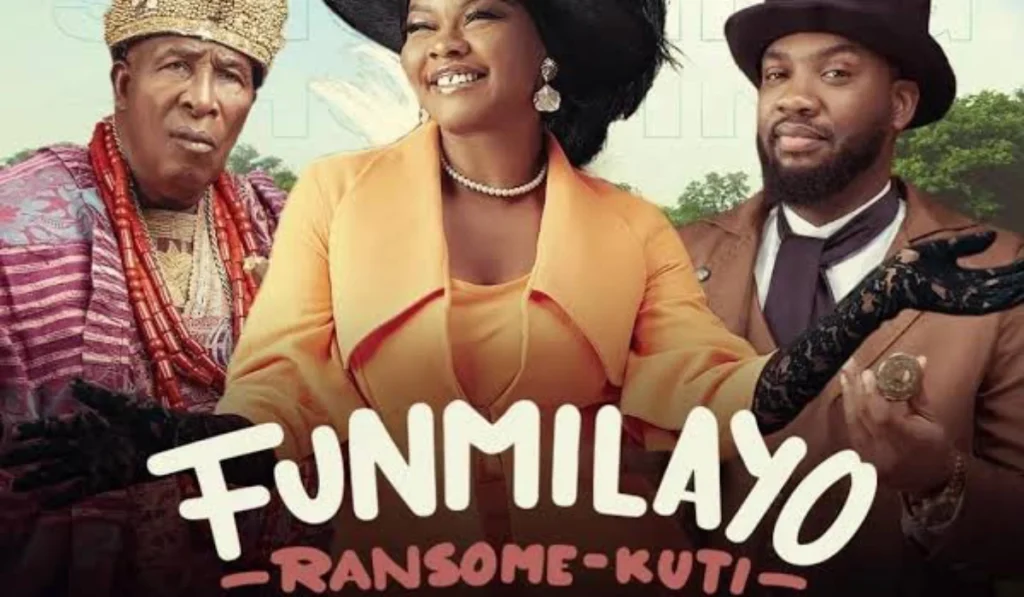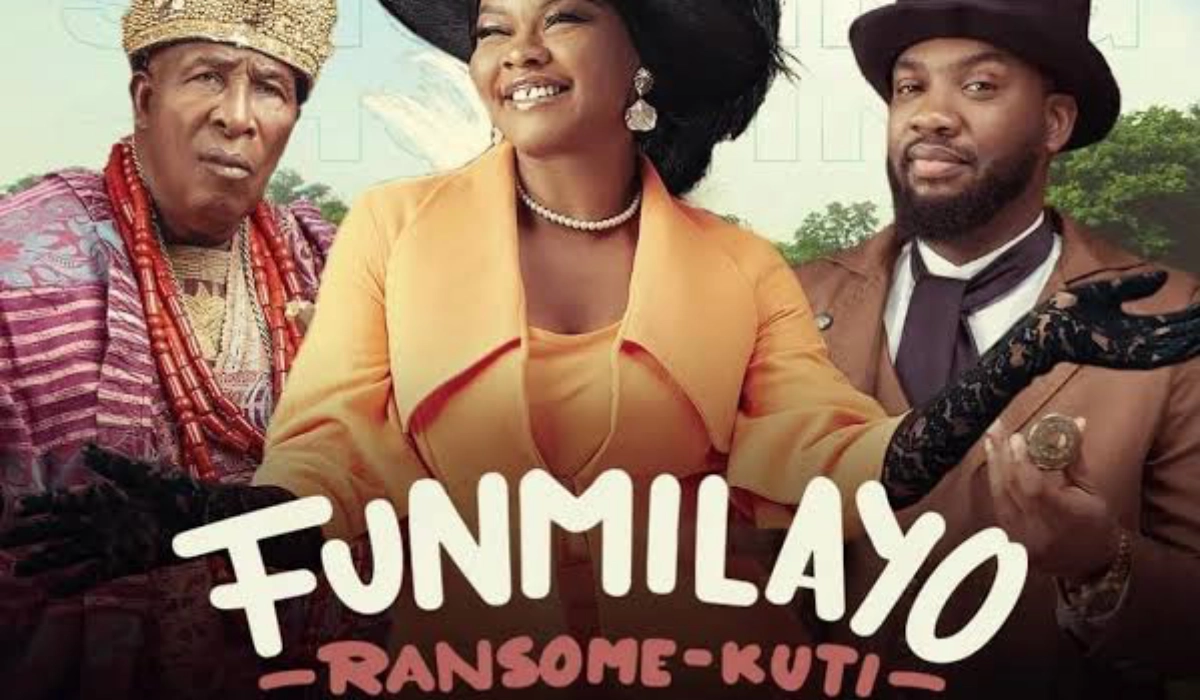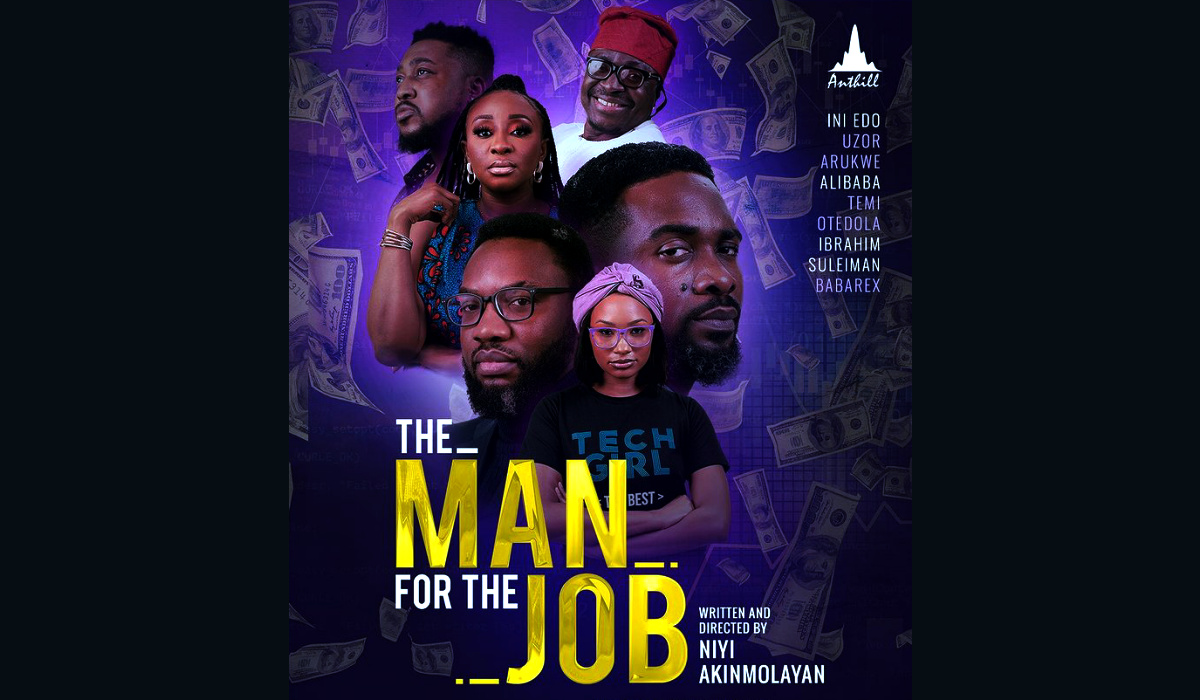Synopsis: The film follows Funmilayo Ransome-Kuti from her youth as the first female student at Abeokuta Grammar School, her meeting of – and marriage to – Israel Ransome-Kuti, her career as an educationist, and the formation of the Abeokuta Women’s Union (initially called the Abeokuta Ladies’ Club) which led to the revolt against colonial rule and the patriarchy. The story was portrayed as a series of flashbacks narrated by Joke Silva.
Table of Contents
The Cast
- Joke Silva as Older Funmilayo
- Kehinde Bankole as Funmilayo
- Iyimide Ayo-Olumoko as Younger Funmilayo
- Ibrahim Suleiman as Israel Ransome-Kuti
- Jide Kosoko
- Dele Odule
- Adebayo Salami
- Keppy Ekpenyong
- Adunni Ade
- Omowumi Dada
- Patrick Dibuah
The Crew
- Directed by Bolanle Austen-Peters
- Written by Tunde Babalola
- Produced by Bolanle Austen-Peters

The Review
I will probably be stoned for this review, but with the hype and awards already won by the movie, I expected much more from it than I was served. Don’t get me wrong; the movie, Funmilayo Ransome-Kuti, is good, and tried to stay true to history, as documented in Ake and other books in print about the hero of Egbaland, by the same name. And it allows the new generation to know a bit more about her than just being the first woman in Nigeria to drive a car. Somehow, I expected more depth, more details, and unknown facts than what was already publicly available.
With every movie, Kehinde Bankole shows us she is a lady of excellence. She practically carried the movie on her back, but the onscreen chemistry with Ibrahim Suleiman was lacking. That was not her fault; I have always thought Ibrahim Suleiman acts in a tepid manner, for all his roles. Kehinde must have spent time living in Abeokuta among the people, because she makes a good attempt in speaking Egba dialect, and she was one of the few who got it right.
Having read Ake multiple times, I am able to say that Omowumi Dada does not give a good portrayal of the Eniola Soyinka, the one Wole Soyinka describe as Wild Christian, and while the focus is on Funmilayo, the story arc for the other characters is sorely lacking. Eniola Soyinka is a main character and support for Funmilayo during the siege and riots, and showing some background information about her would have given her some more characterization.
I thoroughly enjoyed the scenes of the siege and the multiple face-offs between Funmilayo and the Alake’s court. The extras do a great job in the riot.
Using the older Funmilayo to narrate the story is a good technique and it helps to bring the story together. However, while the focus is on the culmination of the Egba women’s riot, it appears the fullness of the woman was sacrificed as if she neglected her home. I wonder if that is the true story or just the portrayal in this movie.
Despite my discontent with the movie, I must say it is still a great movie and I have seen it twice. Biopics are tricky to make, especially biopics where some of the people who are part of the history are still alive. I hope this one makes people to read up on the mothers and fathers who have always fought for freedom for the people, not minding their gender.
NollyRated Score for Funmilayo Ransome-Kuti
Score: 4/5 (Great)
NollyRated uses a 5-level scoring system, as follows:
- Poor
- Sub Par
- Okay
- Great
- Outstanding
Join Our Tribe on Twitter: For updates on new Nollywood, Bollywood, and Hollywood movies, reviews, cinema reviews, and Nigerian and American movie personalities, join our tribe on Twitter @NollyRated.
- Review: Tokunbo, a 2024 movie on Netflix, is a well-cooked action thriller - August 25, 2024
- Review: The House of Ga’a, a 2024 movie on Netflix - July 27, 2024
- A Song from the Dark (2024 movie) on Prime Video is an impressive production - July 20, 2024




